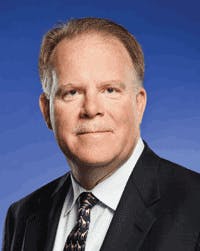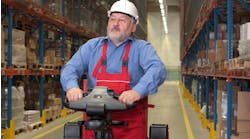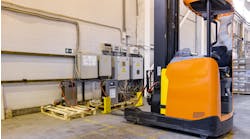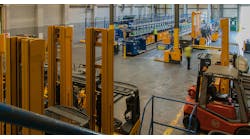MODEX 2014 is one of those events where even the keynote speakers want to network with both the exhibitors and attendees. In addition to the latest material handling and logistics technologies, among the more than 800 exhibits will be displays and discussions about supply chain management. Show floor seminars will address the latest trends in logistics, including same-hour order fulfillment, supply chain modeling, scalable software and preparing your supply chain for e-commerce.
Then there are those keynoters. Lee Scott, businessman and former CEO of Wal-Mart, will offer advice on building the organizational infrastructure to help you implement those trends discussed on the show floor. That will include matching supply chain performance to a company's needs and hiring the right people to fulfill those needs.
Scott Sopher, principal of Deloitte Consulting LLP's supply chain practice, will join George W. Prest, CEO of MHI, in presenting the findings of MHI's newest industry report on how the issues and trends around which MODEX was built will affect business for the next three to five years.
How do we know the MODEX keynoters will want to network at this event rather than just be the center of attention for an hour or two? Because one of them told us as much. By the time he takes the podium to address shipping trends for global supply chains, Gil West will have been the chief operating officer of Delta Air Lines for about two weeks. He will represent the transportation side of that topic while William Strang, president, Americas, Operations Group, TOTO USA, will represent manufacturing. Since West wasn't in the MODEX promotional materials a month in advance of the event, MH&L asked him for a preview of his talk and of his service at Delta Air Lines. Here's our Q&A with him:
MH&L: What's the most important thing logistics professionals will take away from your presentation in particular and from MODEX in general?
West: Speed and innovation are key. Organizations must have the ability to adapt to new business models and the changing global economy. That's why we look for partners who run their businesses on data-driven decisions.
MH&L: How has Delta Airline's approach to material handling and logistics improved over the last few years with regard to freight and its own operations?
West: Delta Airlines has made a concerted effort to leverage our own assets and global logistics reach to provide unprecedented support for our maintenance operations while reducing our logistics spend by approximately 15 percent. Through better measurement, enhanced end-to-end visibility and improved control, we have been successful in moving as much material transport as possible onto our own planes and continue to look for opportunities to move more.
MH&L: How important is logistics management to a company's economic health? Has that changed since the recession?
West: Recession or not, logistics management is all about balancing a very capital-intensive operation. Carrying excess inventory hurts a company's balance sheet and increases borrowing costs, while not having the stock you need can cause costly delays and cancellations. To be successful, especially in the airline industry, it is important to maintain a lean, efficient company. However, there still must be a solid inventory plan and reliable logistics network.
At Delta Airlines, we have implemented lean processes and improved tracking across our operation, improving our bin fill rates by nearly 20 percent while reducing our active inventory in the system by nearly 25 percent since 2012.
MH&L: What's your feeling about the U.S. economy and the global economy in the coming year?
West: Our plans call for GDP across most parts of the globe to be up in the 2-3 percent range, with the strongest improvements in the Latin region. We also expect continued improvement and stabilization for the airline industry.
MH&L: What should shippers be doing differently in preparation?
West: First and foremost you must have a plan, a strategy mixing risk and reward. You cannot plan for the long-term based on short-term realities. It's important to consider all aspects of the business as something you can influence. And finally, to seek conscientious growth. More is not always better.
Editor's Note: It's always better to have more options, and those will be abundant on the MODEX show floor. Check out our MODEX preview for a taste of what is in store for you at MODEX 2014.





